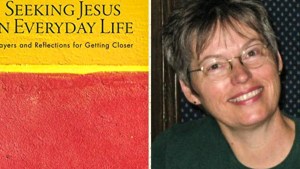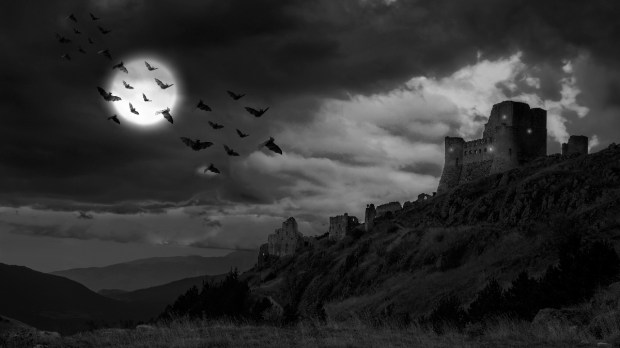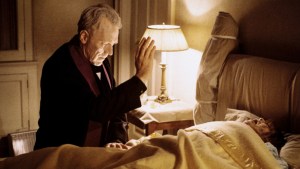Recently I read Dracula for the first time with my Well-Read Mom book club—well, the first time other than an ill-fated attempt when I was 12, that left me so terrified of vampires I sprinkled garlic around my bed and had nightmares for weeks. I was so curious to revisit the book some 20 years later—and actually finish it this time.
I was surprised to find that I loved it! The plot is fast-paced and gripping, lending itself to much discussion, with important themes like friendship and working together to fight evil. It was fascinating to see where so many popular legends about vampires emerged, and by a nice coincidence, I learned even more at an exhibit on vampires at Chicago’s Field Museum. (For example, did you know much of the vampire mythology arose from a little-understood illness called porphyria?)
But one thing bothered me about Dracula, and it was a big topic at our book discussion. Dracula reveals a confused and problematic understanding of the Catholic Eucharist. Let’s unpack it.
A muddled admiration
The characters in Dracula clearly see Catholic sacraments and sacramentals as very powerful. While the crucifix and rosary repel vampires, the Eucharist in particular is the strongest weapon against them.
And that’s where things get dicey for those of us who believe in the Real Presence. Holding up the Blessed Sacrament to repel an evil force? Seems legit, given proper permission and reverence (and St. Clare did it one time). But crumbling up the Eucharist into tiny pieces, mixing it with putty, and shoving it in door jambs to keep vampires ensnared, as a character in Dracula does? Um, that is straight-up sacrilegious and I can’t imagine any believing Catholic would be OK with it.
(The character, who is supposedly Catholic, says it’s permitted for him to do those things because he has an “indulgence,” when he must mean a “dispensation” or “indult.” This is yet another example of the book’s confusion swirling around Catholic concepts.)
“A priest would never do that”
Reading these scenes reminded me of the time an acquaintance asked me to review a horror novel he was writing. “You’re the only Catholic I know,” he explained. A Catholic priest character appeared in the novel, so he wanted my take.
I read it, and then I had to sit down and essentially give this fellow a whole class on Eucharistic theology, because it was clear no Catholic beliefs had been consulted in its writing. He had written his priest character tossing Hosts at a possessed character on the side of a mountain, as though the Eucharist was some kind of insect repellent.
“A priest would never do that,” I explained. “We believe the Eucharist is Christ’s Body and Blood, and more likely a priest would rather die than see it desecrated.”
One wonders if, like my horror-writing acquaintance, Dracula author Bram Stoker had never spoken to a practicing Catholic. Evidently he ascribed a great spiritual power to the Eucharist, but with a very incomplete understanding.
The biggest misunderstanding
Probably the worst instance of confused theology comes when Dracula cruelly forces a female character to drink vampire blood and thus she slowly starts to become a vampire herself. Her friends, hoping to help her, touch the Blessed Sacrament to her forehead—and it burns her skin, leaving a scar!
This scene really bothered a lot of the women at my book club. “Why would Jesus in the Eucharist hurt someone who was totally good and innocent, just because they were preyed on against their will?” one woman asked.
To me, the answer is clear. Jesus would never do such a thing. In the many, many Eucharistic miracles, there has not been one recorded instance of the Eucharist burning or hurting anyone, so Stoker made up this whole scenario.
As I told my book club, “This is a Bram Stoker problem, not a Eucharist problem.” Stoker seems to see the Blessed Sacrament as some kind of magical talisman, not as the Body and Blood of God.
Despite the very flawed theological understanding, Dracula is still well worth a read. The religious themes explore the battle of good versus evil in an unforgettable way. As one of my friends said, “I found this book really scary, not because vampires are real, but because the devil is real and Dracula represents him.”
I do recommend this book, both as an enjoyable novel and as a great topic for conversation. It has a wonderfully gripping plot, imaginative and thrilling. Just be careful to take it with a grain of salt (or garlic), because its theological understanding is a jumbled mess.



